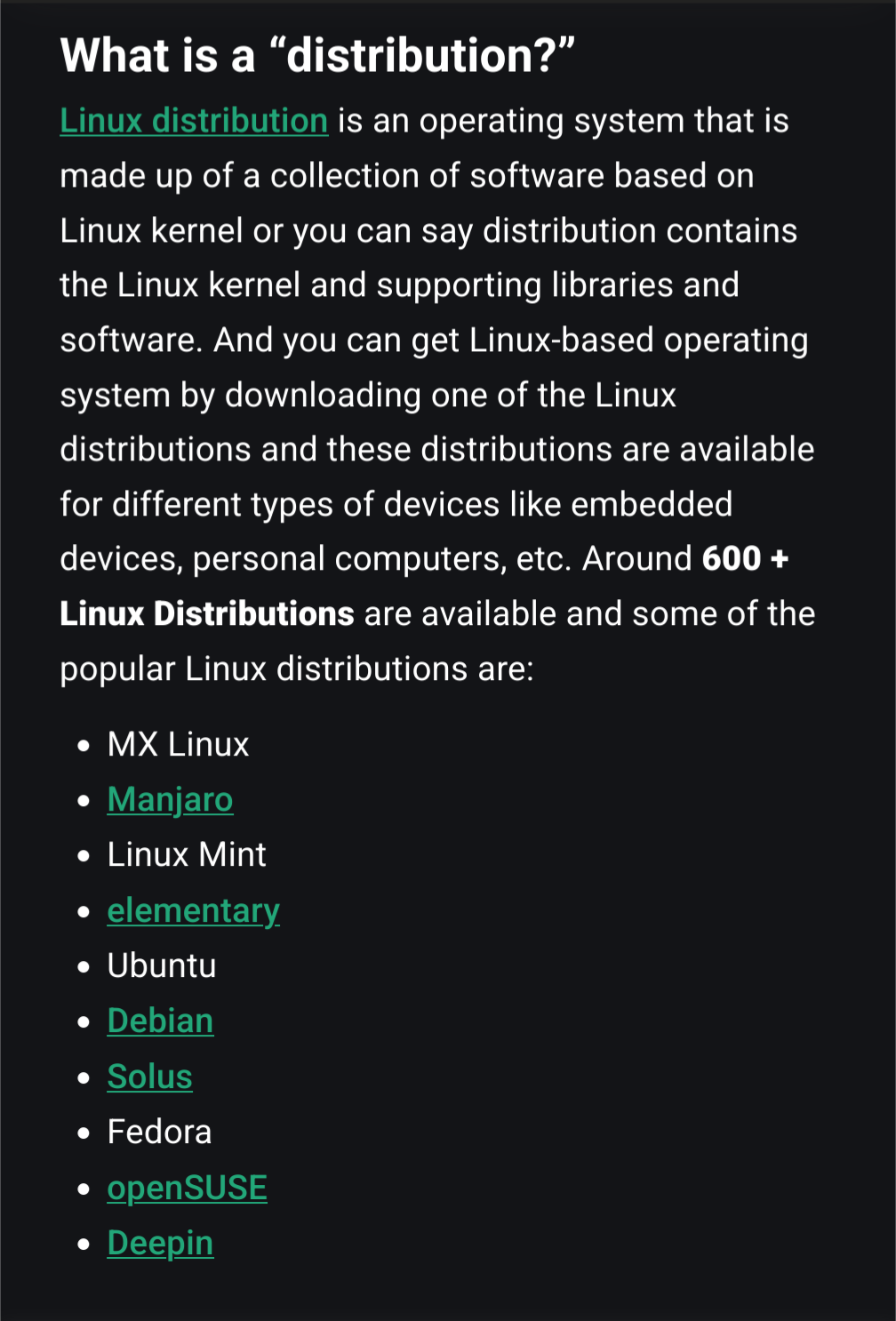Can someone point me to a helpful beginners resource explaining some Linux basics? Like what is the difference between “distro”, which is what, like Ubuntu, fedora, Debian (? Or is that a category of distro?) And desktop environment which is what, KDE, Lubuntu, gnome? Like I don’t even know I have these categories right let alone understand why I’d pick one over another and what practical effects it will have- which apps will I/won’t I be able to install, etc…
I’m not expecting anyone to answer these questions for me, but if you could point me to something already written, I’d appreciate it.
This article is conflating terms that I need help distinguishing between. The other commenter mentioned that Ubuntu is a type of Debian but this article lists Debian and Ubuntu as distributions.
Debian is a base distro, in your example. Other distros can be based upon other ones. Think of it like another layer; the distro maintainers look at Debian and say, “I like these aspects, but I think we can build upon that and make something even better!”
This means those distros with a “base” are
downstreamof theupstreamdistro base, and any time the upstream distro gets updates, the downstream ones will benefit.See the comment here: https://sh.itjust.works/comment/14684312
I’d say that the article is correct in calling them separate distributions.They are certainly related (both part of the Debian family), but I think most people would consider them to be separate distributions. Software built for Ubuntu 24.04 may work on Debian 12, but it might also not. For a beginner, I think it’s most useful to consider them to be separate things.